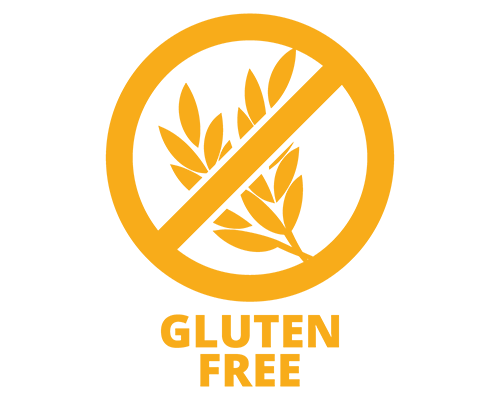The global health and wellness industry has witnessed a significant shift towards gluten-free products, reflecting a growing consumer awareness and demand. This article delves into the world of gluten-free supplements, exploring their importance, variety, and impact on health. We will navigate through the realms of gummies, softgels, pills, tablets, sea moss gel, and Shilajit resin, offering a comprehensive understanding of these supplements from a gluten-free perspective.

1.Understanding Gluten-Free
1.1 What is Gluten-Free?
Gluten-free refers to the absence of gluten, a group of proteins found in wheat, barley, rye, and triticale. Gluten can cause health issues for individuals with celiac disease, gluten sensitivity, or wheat allergy. In these cases, a gluten-free diet is not just a lifestyle choice but a necessary health measure.
1.2 The Importance of Gluten-Free Supplements
For individuals requiring a gluten-free diet, the importance of gluten-free supplements cannot be overstated. These supplements ensure that they can receive their necessary nutrients without the risk of gluten contamination, which is crucial for maintaining their health and well-being.
1.3 Who Needs Gluten-Free Supplements?
A. Individuals with Celiac Disease
Celiac disease is an autoimmune disorder where the ingestion of gluten leads to damage in the small intestine. For these individuals, gluten-free supplements are not just a preference but a necessity to avoid serious health complications. Gluten, even in trace amounts found in some supplements, can trigger symptoms like abdominal pain, bloating, and diarrhea, and lead to more severe consequences like malnutrition and intestinal damage.
B. People with Non-Celiac Gluten Sensitivity (NCGS)
This group experiences symptoms similar to celiac disease when consuming gluten but without the intestinal damage. Symptoms can include gastrointestinal issues, fatigue, and headaches. Gluten-free supplements can help alleviate these symptoms by ensuring that their supplement regimen doesn't inadvertently introduce gluten into their diet.
C. Individuals with Wheat Allergy
Those with a wheat allergy may experience allergic reactions when consuming wheat, which is a common source of gluten. While not all gluten-containing grains trigger this allergy, gluten-free supplements provide a safer alternative, eliminating the risk of allergic reactions.
D. People with Irritable Bowel Syndrome (IBS)
Some individuals with IBS find that a gluten-free diet helps manage their symptoms. While the relationship between gluten and IBS is not fully understood, gluten-free supplements can be part of a broader dietary strategy to reduce IBS symptoms like cramping, bloating, and irregular bowel movements.
E. Individuals Following a Gluten-Free Diet for Other Health Reasons
Some people choose a gluten-free diet for reasons other than gluten sensitivity, such as perceived health benefits or personal preference. For these individuals, ensuring that their supplements are also gluten-free aligns with their overall dietary choices.
F. Athletes and Fitness Enthusiasts
Athletes and those heavily involved in fitness often seek to optimize their diet for performance and recovery. Some may find that gluten-free supplements align better with their dietary needs, reducing inflammation and improving gut health, which can be crucial for high-level performance.
G. Parents of Children with Gluten Sensitivities
Parents who manage diets for children with gluten sensitivities or celiac disease must ensure that all dietary supplements are gluten-free to protect their children from adverse reactions.
H. Health-Conscious Consumers
A segment of health-conscious consumers prefers gluten-free products, including supplements, as part of a lifestyle choice. They may perceive gluten-free products as cleaner or more natural.
I. Individuals with Autoimmune Disorders
Some people with autoimmune disorders other than celiac disease may choose gluten-free supplements as part of an anti-inflammatory diet, which is believed by some to help manage autoimmune symptoms.
J. Elderly Individuals with Digestive Issues
Older adults often face various digestive issues. Some may find that gluten-free supplements are gentler on their digestive system and help in avoiding discomfort associated with gluten-containing products.
While those with celiac disease or gluten sensitivity are the primary consumers of gluten-free products, the market has expanded. Many people opt for gluten-free supplements for various reasons, including digestive health, inflammation reduction, and lifestyle choices. This broadening consumer base has propelled the gluten-free supplement market to new heights.

2. Gluten-Free Supplements in the Market
The market for gluten-free supplements is expanding, offering various types for different health needs. Let's delve into the types and their gluten-free components.
2.1 Types of Gluten-Free Supplements
- Gummies: These are often made with pectin, a fruit-derived substance, instead of traditional gelatin, which can sometimes contain gluten. They provide a chewable and enjoyable way to take supplements.
- Softgels: Gluten-free softgels are typically made from non-gluten containing gelatin alternatives or plant-based materials, ensuring safety for gluten-sensitive individuals.
- Pills and Tablets: These are formulated without gluten-containing binders or fillers, using alternatives like cellulose or starch derivatives from non-gluten sources.
- Sea Moss Gel: Naturally gluten-free, this gel is derived from red algae and is free from any gluten contaminants.
- Shilajit Resin: Extracted from high mountain rocks, Shilajit is inherently gluten-free and does not involve any gluten in its processing.
2.2 Gluten-Free Ingredients and Sources
- Pectin (for Gummies): Derived from fruits and used as a gelling agent.
- Plant-Based Materials (for Softgels): Such as tapioca starch or seaweed extracts.
- Cellulose or Starch Derivatives (for Pills/Tablets): Sourced from non-gluten containing plants.
- Red Algae (for Sea Moss Gel): Harvested from the ocean, inherently free of gluten.
- Mountain Rock Extracts (for Shilajit Resin): Naturally occurring substance with no gluten involvement.

3. Health Benefits of Gluten-Free Supplements
Gluten-free supplements offer several health benefits, particularly for those with gluten sensitivities or celiac disease.
A. Reduced Inflammation: Gluten can cause inflammation in sensitive individuals. Gluten-free supplements eliminate this risk, aiding in overall health and well-being.
B. Improved Digestive Health: For those with gluten intolerance, gluten-free supplements can prevent gastrointestinal discomfort, bloating, and other digestive issues.
C. Enhanced Nutrient Absorption: Gluten sensitivity can impair nutrient absorption. By using gluten-free supplements, individuals can ensure better absorption of the vitamins and minerals they need.
D. Lower Risk of Contamination: Gluten-free supplements reduce the risk of cross-contamination with gluten, which is crucial for those with celiac disease.
E. Broader Accessibility: They cater to a wider audience, including those who choose a gluten-free lifestyle for reasons beyond medical necessities.
Differences Between Gluten-Free and Regular Supplements
A. Ingredient Sourcing: Gluten-free supplements require careful selection of ingredients to avoid any gluten contamination.
B. Manufacturing Process: They often require dedicated facilities or stringent cross-contamination controls in shared facilities.
C. Labeling and Certification: Gluten-free supplements undergo stricter labeling regulations and often need certification to assure consumers of their gluten-free status.
Understanding these aspects is vital to cater to a market that is increasingly aware and demanding of gluten-free options. This knowledge helps in making informed choices for their product lines and addressing the needs of a diverse consumer base.
4.Ensuring Gluten-Free Integrity in Production
A. Understanding Cross-Contamination Risks
Cross-contamination is a significant concern in the production of gluten-free supplements. It can occur at various stages, from raw material sourcing to processing and packaging. Manufacturers must be vigilant about potential gluten contamination sources, including shared equipment, facilities, and even airborne gluten particles.
B. Sourcing Gluten-Free Ingredient
The first step in ensuring gluten-free integrity is sourcing raw materials that are certified gluten-free. Suppliers must provide documentation verifying that their ingredients are free from gluten contamination. This often involves rigorous testing and quality assurance processes.
C. Dedicated Gluten-Free Facilities
To minimize the risk of cross-contamination, some manufacturers opt for dedicated gluten-free production facilities. These facilities are designed to handle only gluten-free products, significantly reducing the risk of accidental gluten exposure.
D. Regular Testing and Monitoring
Regular testing of both raw materials and finished products is crucial. This can involve in-house testing or third-party certifications to ensure compliance with gluten-free standards. Frequent monitoring helps in identifying and addressing any contamination issues promptly.
E. Employee Training and Awareness
Employees must be trained on the importance of gluten-free protocols. This includes understanding how gluten contamination can occur and the steps necessary to prevent it. Regular training sessions can help maintain a high level of awareness and compliance.
F. Transparent Labeling and Certification
Transparent labeling is key. Products should clearly indicate their gluten-free status, and any certifications (like GMP, FDA, ISO, HACCP) should be prominently displayed. This helps build trust with consumers who rely on these labels for their health and safety.

5.Market Trends and Consumer Insights
A. Growing Demand for Gluten-Free Products
The demand for gluten-free products has been steadily increasing, not only among those with gluten sensitivities but also among the general health-conscious population. This trend is reflected in the supplement market, with a growing number of consumers seeking gluten-free options.
B. B2B Customer Preferences
In the B2B sector, there's a noticeable preference for supplements that cater to a wider audience, including gluten-free options. Businesses are looking to stock products that align with the evolving health trends and consumer demands.
C. Innovation in Gluten-Free Formulations
There's a significant push towards innovation in gluten-free supplement formulations. This includes exploring new gluten-free ingredients and developing products that match the efficacy and taste of traditional supplements.
D. Educated and Inquisitive Consumers
Today's consumers are more educated and inquisitive about the products they consume. They often research ingredients and manufacturing processes, looking for products that meet their specific dietary needs and preferences.
E. Impact of Certifications and Quality Standards
Certifications like GMP, FDA, ISO, and HACCP play a crucial role in building consumer trust. They are often a key factor in B2B purchasing decisions, as they assure quality and safety standards.
F. Adapting to Market Needs
Companies that quickly adapt to the growing gluten-free trend are more likely to succeed in the current market. This involves not only offering gluten-free products but also ensuring transparency and education about their products' benefits and manufacturing processes.
Understanding these market trends and consumer insights is vital for businesses looking to thrive in the competitive supplement industry. Catering to the gluten-free market requires a combination of rigorous production standards, innovative product development, and responsive marketing strategies.

6.The Future of Gluten-Free Supplements
A. Innovations in Gluten-Free Products
The future of gluten-free supplements is marked by continuous innovation. This includes the development of new gluten-free ingredients and formulations that offer enhanced health benefits without compromising on taste or efficacy.
B. Technological Advancements
Technological advancements in production and testing are expected to play a significant role. These advancements will make it easier to ensure gluten-free integrity throughout the manufacturing process and to develop products that are both safe and effective for gluten-sensitive individuals.
C. Expanding Market Reach
The gluten-free supplements market is poised to expand its reach. This expansion is not just limited to those with celiac disease or gluten intolerance but also includes a broader audience seeking healthier lifestyle choices.
D. Personalized Gluten-Free Solutions
Personalization is becoming a key trend. Future gluten-free supplements may offer more personalized options tailored to individual health needs and dietary restrictions, leveraging advancements in nutrition science and data analytics.
E. Regulatory Developments
Regulatory frameworks around gluten-free products are likely to evolve, with stricter standards and clearer labeling requirements. This will help in maintaining high-quality standards and consumer trust.
F. Sustainability and Ethical Sourcing
Sustainability and ethical sourcing will become increasingly important. Consumers are becoming more conscious of the environmental impact and ethical considerations of their dietary choices, including supplements.

Conclusion
A. Reiterating the Importance of Gluten-Free Supplements
Gluten-free supplements are more than just a niche market; they represent a significant and growing segment in the health and wellness industry. Their importance extends beyond catering to those with specific dietary needs to encompassing a broader health-conscious audience.
B. Quality and Customer Satisfaction
For manufacturers and suppliers, the emphasis on quality and customer satisfaction is paramount. This includes ensuring gluten-free integrity, adhering to quality standards, and staying abreast of market trends and consumer preferences.
C. Adapting to Changing Market Dynamics
The ability to adapt to the evolving landscape of the gluten-free market is crucial. This involves embracing innovation, understanding consumer needs, and maintaining transparency and integrity in production and marketing.
D. A Commitment to Health and Well-being
Ultimately, the focus on gluten-free supplements aligns with a broader commitment to health and well-being. It's about providing safe, effective, and high-quality options that cater to diverse dietary needs and preferences, ensuring that everyone has access to supplements that support their health journey.
In conclusion, the gluten-free supplements market is not just responding to a trend but is evolving to meet the changing needs of a diverse and informed consumer base. As the market grows, so does the responsibility of manufacturers and suppliers to deliver products that are safe, effective, and aligned with consumer values and expectations.



One Response